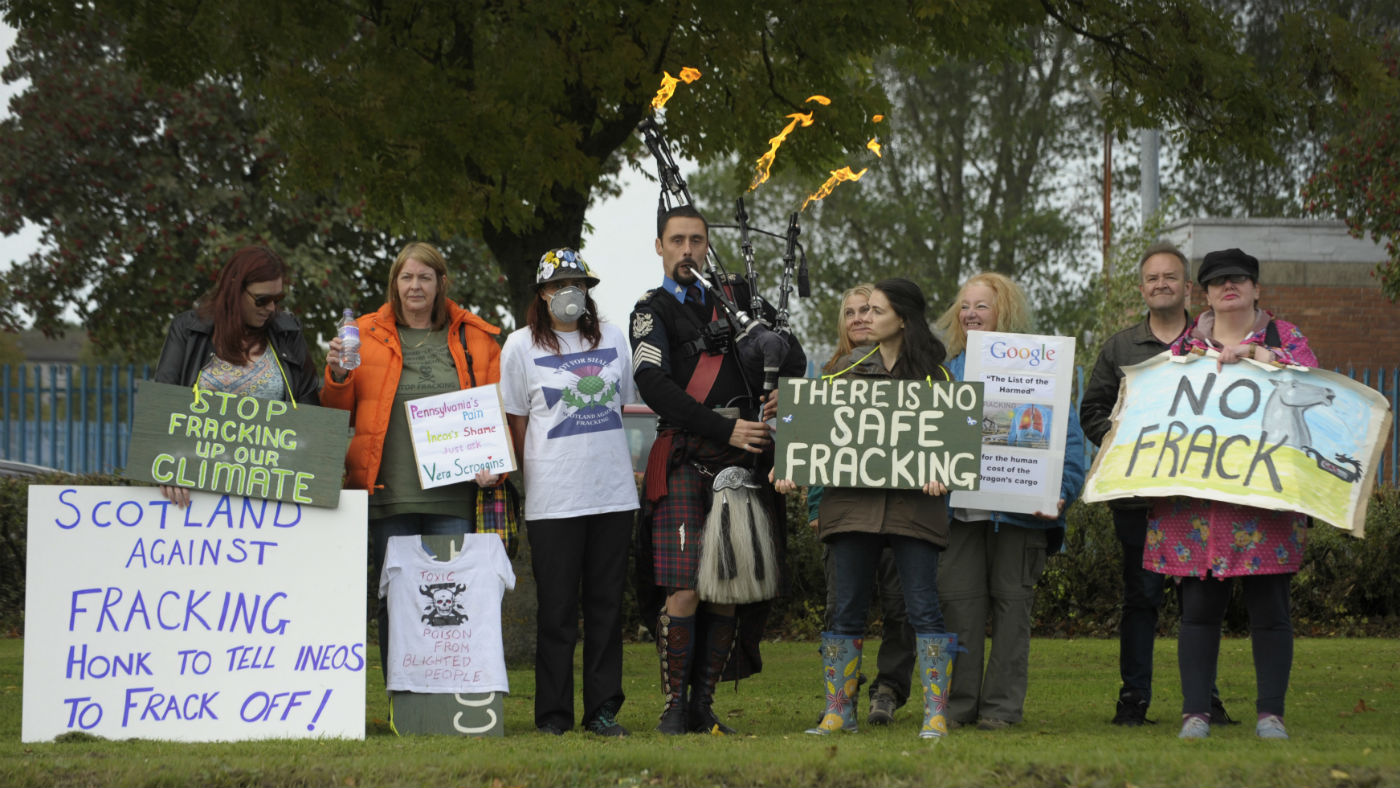Fracking unsuitable for UK, geologist claims
Professor John Underhill says it is '55 million years too late' to exploit 'hyped' oil reserves

A free daily email with the biggest news stories of the day – and the best features from TheWeek.com
You are now subscribed
Your newsletter sign-up was successful
The UK is unsuitable for fracking and its shale gas reserves have been "hyped", one of the country's leading geologists has claimed.
Professor John Underhill, chief scientist at Heriot-Watt University in Edinburgh, believes the UK is "55 million years too late" for the gas extraction technique to work.
The government says that drilling into the earth and injecting liquid into rock at high pressure, forcing apart fractures and releasing gas, is a potentially lucrative source of energy. Opponents, however, claim fracking is harmful to the environment and affects the health of those who live nearby.
The Week
Escape your echo chamber. Get the facts behind the news, plus analysis from multiple perspectives.

Sign up for The Week's Free Newsletters
From our morning news briefing to a weekly Good News Newsletter, get the best of The Week delivered directly to your inbox.
From our morning news briefing to a weekly Good News Newsletter, get the best of The Week delivered directly to your inbox.
The amount of shale gas available in the UK is acknowledged to be "a great unknown", says the BBC.
Speaking to the broadcaster, Prof Underhill said his research on the influence of tectonic plates on the UK suggested the shale formations have been lifted, warped and cooled by tectonic action. He said the government would be "wise" to formulate a Plan B for the UK's future gas supply.
Mary Church, head of campaigns for Friends of the Earth Scotland, told The Independent that the report "adds weight to the already overwhelming case against fracking in Scotland, or indeed anywhere in these isles".
"Fracking presents a whole host of risks to people's health and our local environment," Church said, "while in the context of irreversible climate change, going after a new source of fossil fuels is quite literally the last thing we should be doing."
A free daily email with the biggest news stories of the day – and the best features from TheWeek.com
The government's own opinion tracker shows public support for fracking has fallen to 16 per cent, with opposition at 33 per cent. However, it also reported a lack of knowledge of the technology, with 48 per cent of people neither supporting nor opposing it.